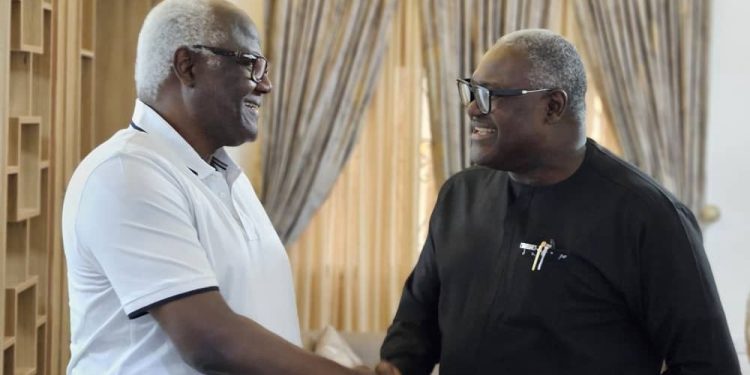By Hassan Osman Kargbo
In a significant development in Sierra Leones political landscape, reports indicate that former President Ernest Bai Koroma (EBK) is poised to return to his homeland, facilitated by the international community and backed by the Economic Community of West African States (ECOWAS).
The news comes amid growing concerns over political tensions, governance challenges, and an increasingly fragile democratic climate in the country.
President Koroma, who has been residing outside of Sierra Leone following legal and political controversies, is said to be at the center of diplomatic efforts aimed at ensuring his safe and dignified return. His supporters argue that his prolonged absence reflects a broader pattern of political victimization, while critics of the current administration suggest that his treatment sets a dangerous precedent for political transitions in Sierra Leone.
According to JFK, the legal representative of the former President, ECOWAS is a key regional body advocating for stability and democracy in West Africa that has played a crucial role in brokering discussions surrounding Koroma’s return.
JFK said that international mediators are pressing for a resolution that respects human rights, maintains national stability, and ensures fair legal treatment for the former President.
Political analysts believe that President Julius Maada Bio, who has faced increasing scrutiny over governance issues, is under pressure to navigate this situation carefully. With Sierra Leone grappling with high living costs, human rights concerns, and drug-related scandals, the government may need to demonstrate greater political tolerance to maintain regional and international goodwill.
The potential return of Koroma is expected to have significant political implications, particularly as Sierra Leone inches closer to the 2028 general elections.
The opposition All People’s Congress (APC) remains a formidable force, with many of its members viewing Koroma as a political father figure. His return could galvanize the party’s base, strengthen internal unity, and reinvigorate its momentum heading into the next electoral cycle.
Recent public discourse suggests widespread dissatisfaction with the current government’s handling of economic and security challenges. Inflation, unemployment, and a rise in drug-related incidents have fueled frustration among citizens, creating an environment where opposition voices are gaining traction. Many believe these factors could set the stage for an APC resurgence in the next elections.
Some political observers argue that President Bio’s handling of Koroma’s situation could set the tone for his own legacy. They point out that fostering national reconciliation and upholding democratic principles could ultimately benefit both the government and the opposition. A peaceful political environment is essential for Sierra Leone’s progress; and ensuring a fair and just process for Koroma could be a step toward achieving that stability.
Meanwhile, members of the ruling Sierra Leone People’s Party (SLPP) are being advised to engage in bridge-building efforts rather than deepening divisions.
Political transitions are inevitable, and leaders from both sides are being urged to adopt a spirit of cooperation rather than confrontation.













